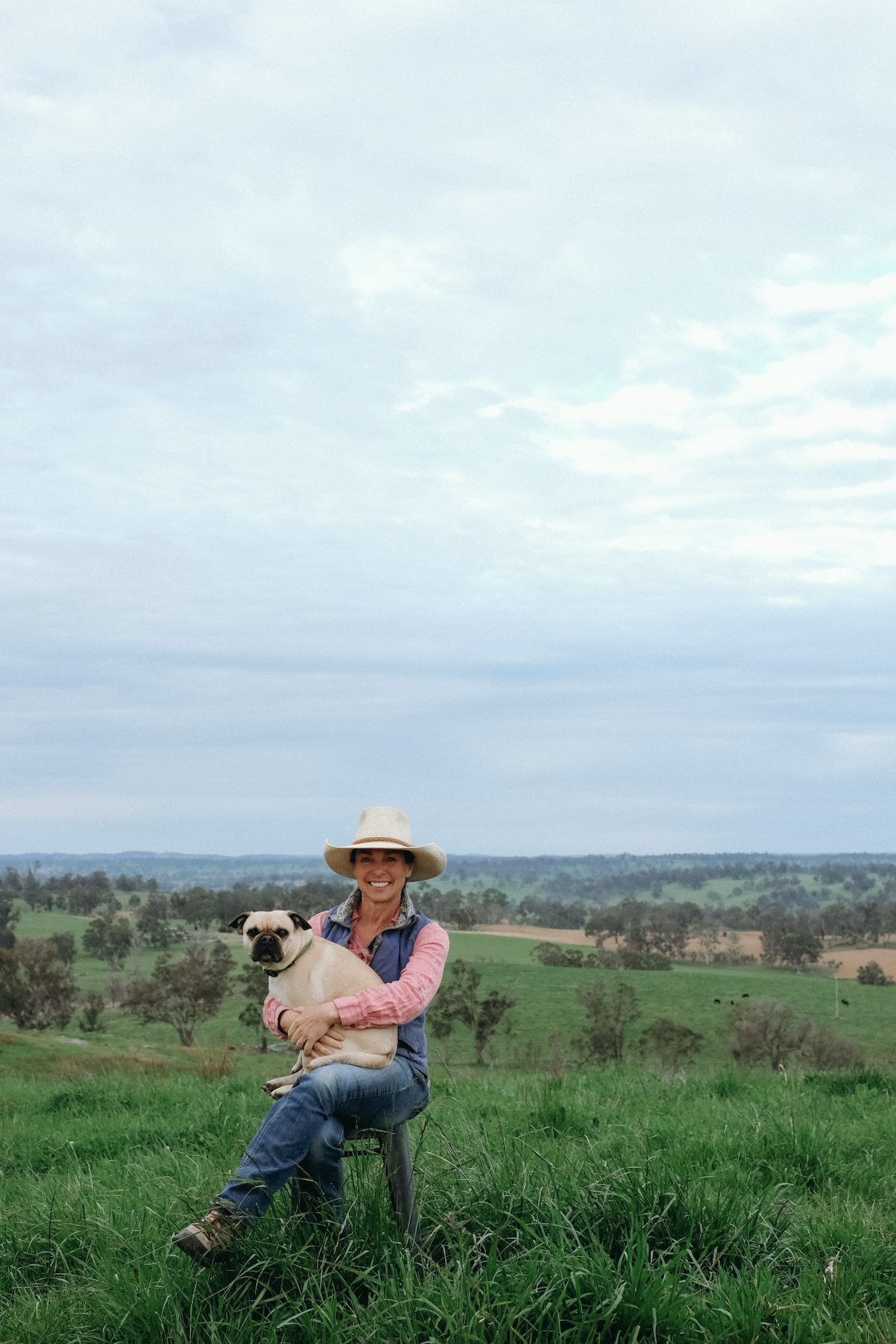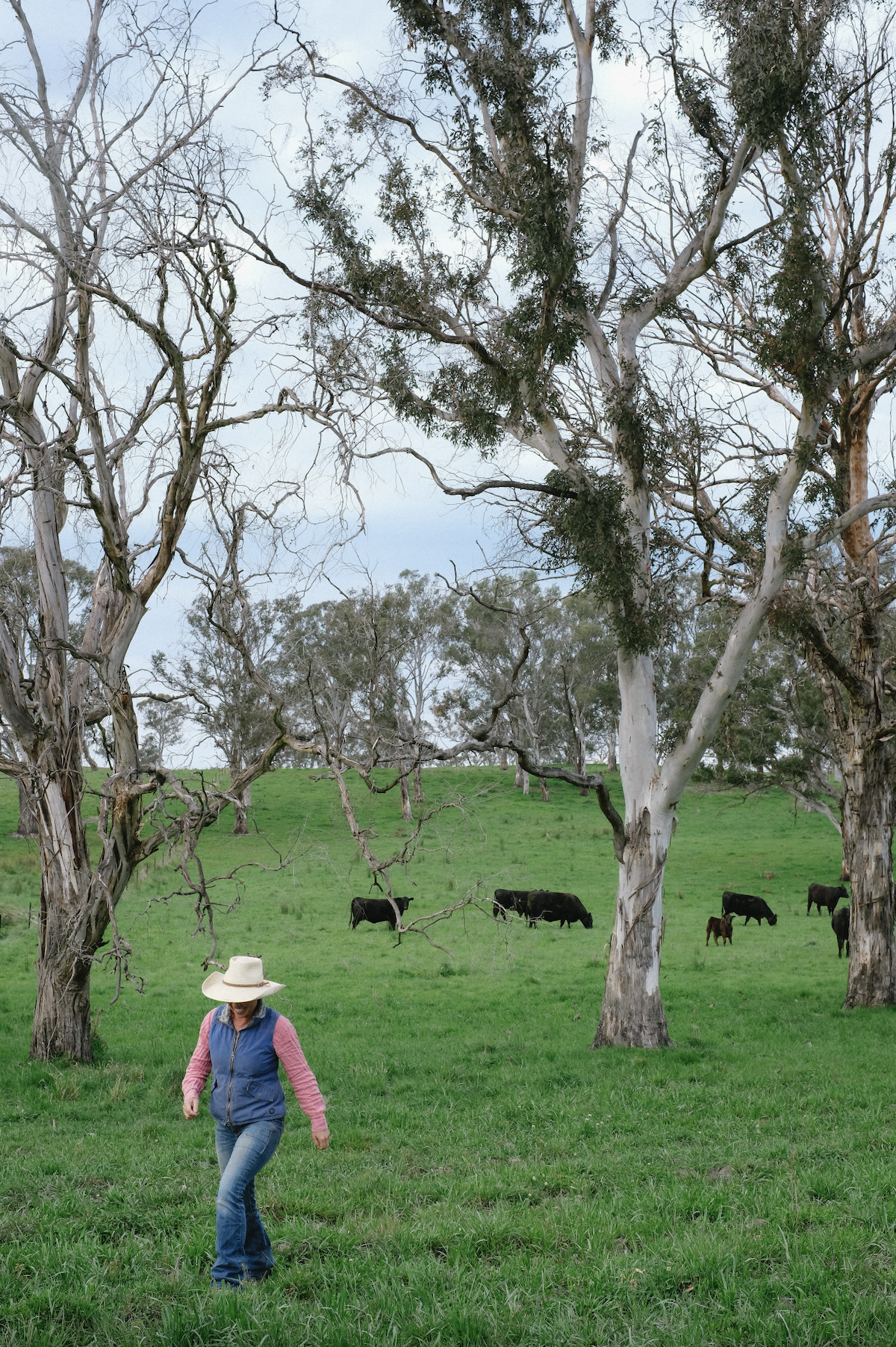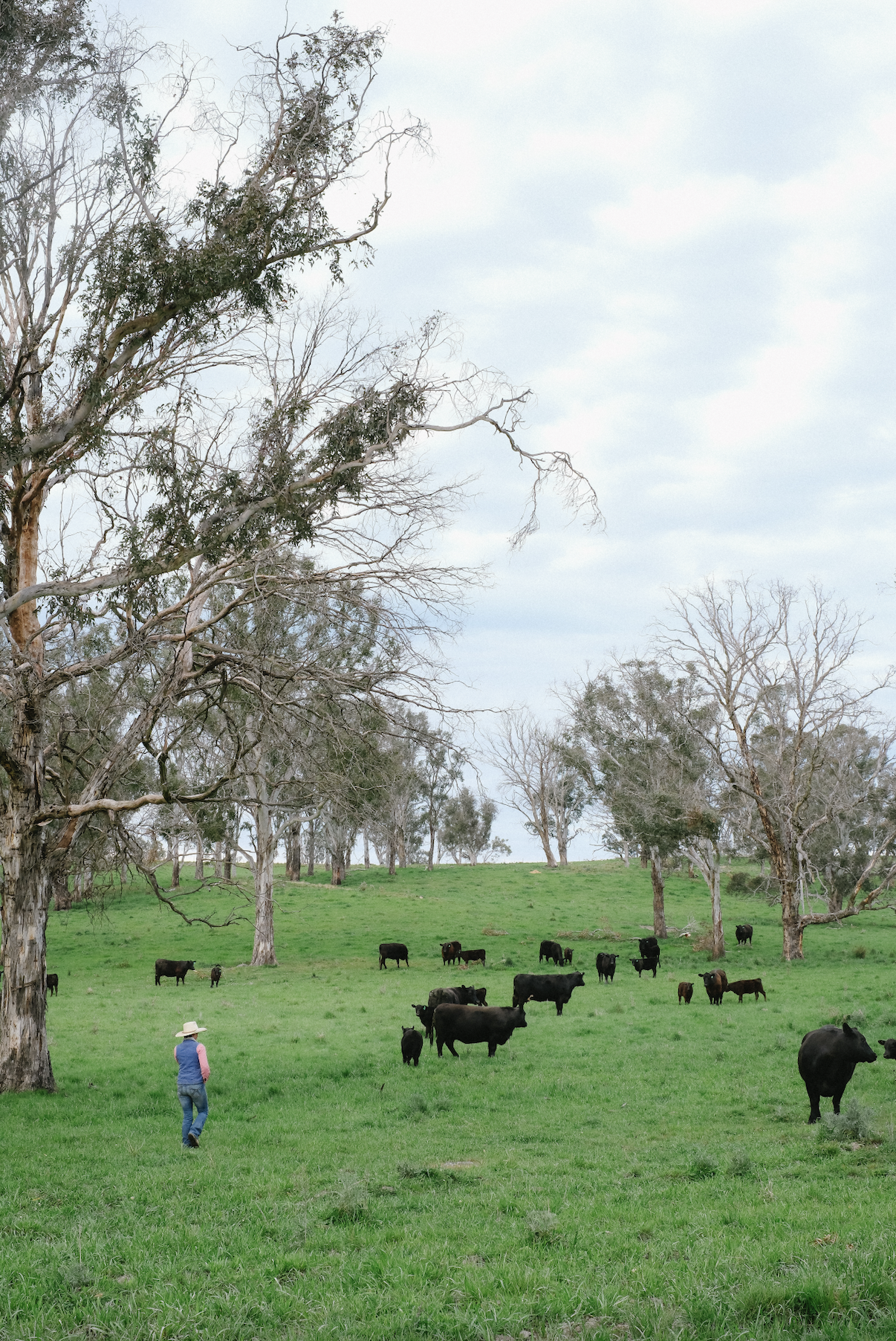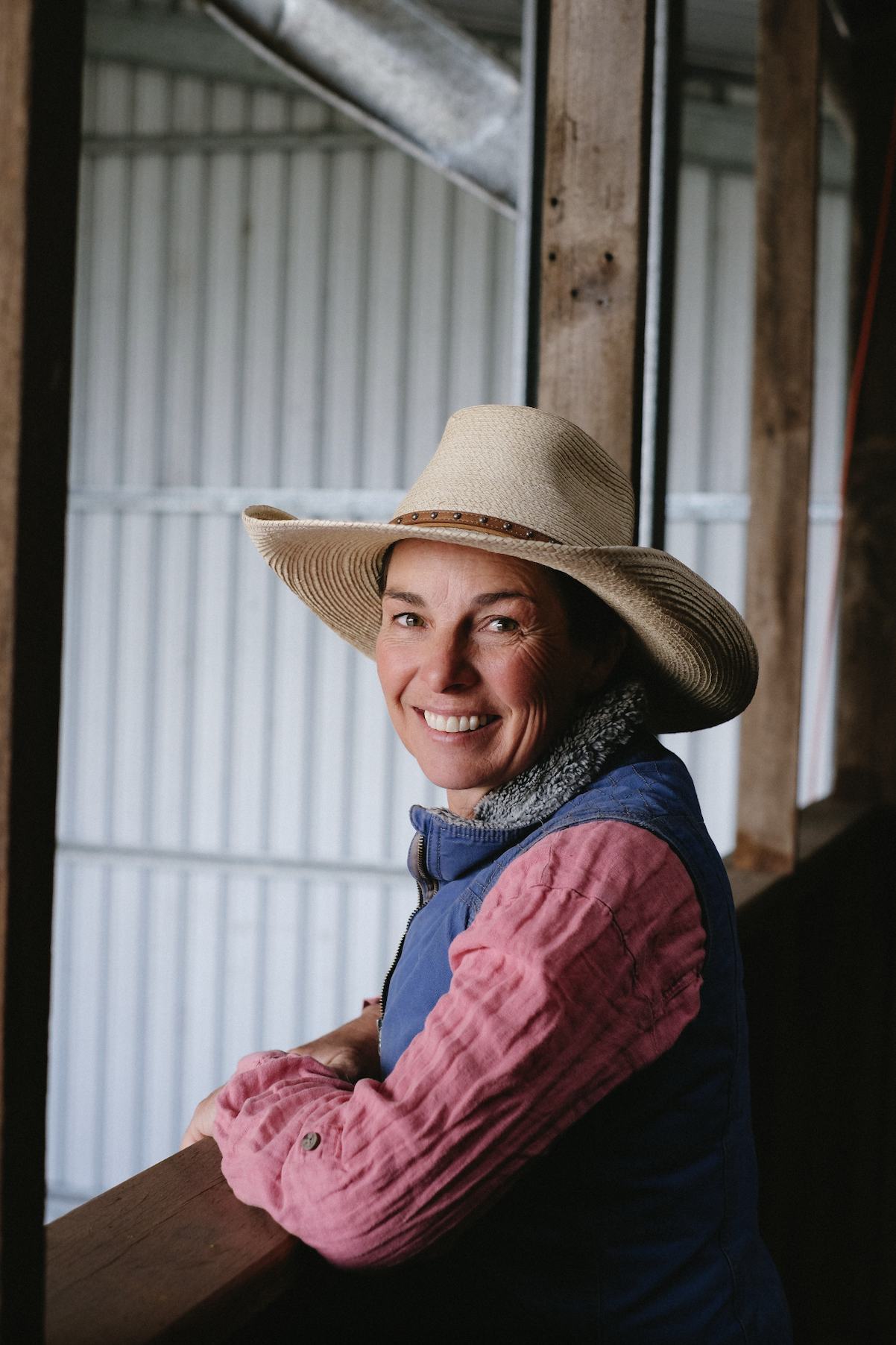Erica Halliday
There’s a kind of quiet authority that surrounds Erica Halliday. The kind that comes not from title or tenure, though she has plenty of both, but from the conviction of someone who believes deeply in what she does.
From her family property Ben Nevis, nestled near Walcha in Northern New South Wales, Halliday carries forward more than a century of legacy as the current stud master of one of Australia’s oldest Angus studs. Yet for all the weight of history in her story, what defines her most is an unwavering belief in the nobility and the necessity of agriculture.
Her impact extends far beyond her own fences. As past president of Angus Australia and current board member, chair of the World Angus Forum committee and board member for Rural Aid, Erica has helped steer organisations into new conversations around sustainability, methane reduction and the global future of beef. It’s a role she carries with both realism and optimism.
Could you please introduce yourself?
My name is Erica Halliday, I’m a grazier from Walcha in Northern New South Wales and I’m the stud master at Ben Nevis Angus which is one of the oldest studs in Australia.
My family first came out here in 1860, there were a number of brothers and they were all 6’4. The first brother married and came from Scotland. He wasn’t here long before the three others followed. Those big men, and now we’re little 5’2’s – how funny.
What’s your approach to breeding?
We’re very much a stud where we’re trying to breed an animal that people really enjoy running. We got a lot of people coming to us because our cattle are quiet. At the same time, we’re trying to fold in more marbling under the hide, which makes for a better eating experience for people. When we were kids Angus was made fun of, now they’re the biggest breed in Australia.
Could you tell me about the work you’re doing off-farm?
I’m the past President of Angus Australia, and Chair of the World Angus Forum Committee. I’m still on the Angus Australia board and I’m on the Rural Aid board.
Do you remember the drought we had in 2018, 2019? That was horrific. You just feel so alone, like it's never going to end. During that time we were given a donation of hay and some water which only lasted a couple of days but it was just the fact that someone was out there thinking about you. When the drought finished I knew I wanted to do something to help someone else like we’d be helped. Just to let people know that they’re not alone. I joined the board of Rural Aid, and that’s been amazing. There’s always something, always a flood, always a drought. We send hay, water, counselling – we send hope.
How do you feel the role of women has shifted in agriculture throughout your career?
Women are the fabric of agriculture. When I was growing up, my dad only had daughters and he said to me he wouldn’t have wanted it any other way because women do things differently to men on the land. Rather than using brute force, they quite often use intelligence, intellect and intuition.
Women have a huge future on the land. A lot of people that come and buy bulls from us are women, now taking over their family businesses because they’re completely capable. We have all the tools that we need now – the business skills, the machinery, the people skills, the livestock skills. So why shouldn't we be taking it on? I’m not saying that men can’t do it either, I’m just saying that women can equally run the farms.
My dad was instrumental in all of that. He always said to me, women can do anything. He was really supportive of the fact that I wanted to be on the land – it was no different to him to having a son.
How do you think we can best celebrate rural women?
I think a lot of it is just letting them get on with the job. I believe that given equal opportunity, that women will just thrive.
Across agriculture the landscape is forever changing, but it does seem at the moment a lot of people are afraid of an uncertain future for the industry. How do you feel about how Australia is positioned and what is it about the future of the industry that you’re excited about?
It’s interesting that you say that. Australian agriculture at the moment feels like it's on the verge of a precipice almost. Some people are wondering whether agriculture has a future, but I don’t think that there is one industry in the whole world that has more of a future. If we are going to do something about things like climate change and feeding the population, farming and agriculture is where that change can happen. We’re the ones that are most affected by it. We love the land so much, we love what we do so much that we’re going to move heaven and earth to ensure a solid future for agriculture.
We’re also vital to being able to capture excess carbon from the atmosphere and actually bury it in the paddock where it belongs. At the same time we’re using grass that people can’t eat and turning it into the most nutrient dense form of protein on the planet.
What advice would you give to a woman considering a career in agriculture?
I would tell her mostly to trust her instincts. I think instinctually women are very good at agriculture, and are naturally concerned about the long-term. That innate sense of responsibility is very important.





